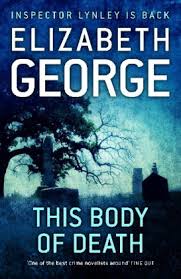The Intersection of Voice and Deep POV
When writers talk about “voice,” they are usually referring to an author’s style of writing. Agents use this definition too. I’ve written about this before, as I feel this designation is off, and often confusing.
In this age of writing in deep POV—meaning, each scene in fiction is coming “through” a particular character, in that every word of the scene is her thoughts, observations, sensory experiences, and opinions. Since that’s the case, that means the entire scene has to be in that character’s “voice,” not the author’s.
This is a huge problem I see in most of the manuscripts I edit and critique. The author’s writing style supercedes the indivual POV characters’ voices such that they all sound the same, use the same vocabulary and syntax, and, essentially come across as clones of one another. Which wouldn’t be a problem if the premise of their novel was about a group of clones. But I haven’t seen that premise cross my desk yet.
What this means is, if you have three POV characters in your novel, the scenes for each one need to read and feel quite different from the other. I should be able to randomly open up a novel I’ve just read (now familiar with the characters) and easily tell, without reading the name, whose POV the scene is in.
Voice, Style, and Tone
Let’s not get tone confused with style or voice.
Voice: Each character has one. If your book has a narrator, whether first person, limited third person, or omniscient, it’s a character voice. It’s not the “author’s” voice.
Style: The way I write—my choice of syntax, sentence structure, vocabulary, paragraph structure, phrasing. My writing style will vary in every book, unless it’s a series that deliberately continues the same writing style. That writing style should fit genre and meet reader expectations. There is usually lots of room for a spectrum of style within genre.
Tone: The overall mood laid over a novel. You can have a humorous tone, a dark tone, a serious tone, a sarcastic tone, a lighthearted tone—to name a few. Sometimes the tone is subtle and nearly invisible, kept in the background as character voice dominates the scenes (as it should be, in my opinion). Genre determines tone. Hence, know your genre and attune your tone accordingly.
While it’s important to experiment with your writing style and tone, as you study hard the best sellers in your niche genre in order to sell well alongside them, you need to be clear about voice and POV.
The scenes of your book have to be shown and told from someone’s point of view (POV). If you are writing in first person, one character, there will be one consistent voice throughout. That’s because you are in that character’s head and seeing everything that happens through her eyes.
So what happens with voice when you have multiple POVs? The answer should be obvious: you have multiple voices.
What I see in many (maybe most) of the novels I edit and critique is a writing style that replaces voice. That overshadows voice. That narrates scenes in lieu of voice.
This is the opposite of masterful writing. It’s usually weak and amateur writing. And often it’s because the writer is a newbie, just trying to get the knack of writing a scene, writing dialogue, figuring out how to show instead of tell. Over time, writers do get enough skill under their belt so that they can focus on developing a great writing style that fits their genre.
But even seasoned fiction writers can fall in the trap of thinking “voice” is all about them and how they are telling the story.
I think I’m passionate about this because I love characters. And the one author who excels in character voices more than any other I’ve ever read is Elizabeth George.
All her characters, great and small, have unique voices. This isn’t just about choice of words or accents or diction. The voice reveals important things like thought process, motivation, personality, and attitude. Those, to me, are the vital elements that need to come out through voice.
Let’s take a look at a couple of passages from Elizabeth George’s novels. I’ll share more in upcoming posts, but this should give you a taste of masterful voice.
When Meredith Powell awakened and saw the date on her digital alarm clock, she absorbed four facts in a matter of seconds: it was her twenty-sixth birthday; it was her day off from work; it was the day for which her mum had suggested a gran-spoils-the-only-grandchild adventure; and it was the perfect opportunity for apologizing to her best and oldest friend for a row that had kept them from being best and oldest friends for nearly a year. This last realization came about because Meredith shared her birthday with that best and oldest of friends. She and Jemima Hastings had been thick as thieves from the time they were six years old, and they’d celebrated their birthdays together from their eighth one on. Meredith knew that if she didn’t make things right with Jemima today, she probably wouldn’t ever do it, and if that happened, a tradition that she’d long held dear was going to be destroyed. She didn’t want that. Dear friends weren’t easy to come by.
The how of the apology took a little thought, which Meredith engaged in as she showered. She settled on a birthday cake. She would bake it herself, take it to Ringwood, and present it to Jemima along with her heartfelt apology and her admission of wrongdoing. What she would not include in the apology and the admission was any mention of Jemima’s partner, who’d been the source of their row in the first place. For Meredith now understood that would be pointless. One simply had to face the fact that Jemima had always been a romantic when it came to blokes, whereas she—Meredith—had the complete and utterly undeniable experience of knowing men were essentially animals in human clothing. The wanted women for sex, childbearing, and house-wiving. If they could just say that instead of pretending they were desperate for something else, women who involved themselves with them could then make an informed choice about how they wanted to live their lives instead of believing they were “in love.”
Meredith pooh-poohed the entire idea of love. Been there, done that, and Cammie Powell was the result: five years old, the light of her mother’s life, fatherless, and likely to remain that way.
George’s gift is in knowing her characters through and through. The stream of narrative is their stream of thought, and the words used paint a clear picture of the character’s thought process and personality. In these opening paragraphs with Meredith, we get her fairly quickly. There is no flat physical description, describing her hair, weight, and eye color. We are right in her head and are peeking at what concerns her in the moment.
As each character is introduced, we peek inside and learn things no one on the “outside” would hear.
David Emery considered himself one of Stoke Newington’s very few Cemetery Experts, which he always thought of in uppercase letters, David being an Uppercase sort of bloke. He’d made an understanding of Abney Park Cemetery his Life’s Work (another uppercase situation for him), and it had taken him ages of wandering and getting lost and refusing to be cowed by the general creepiness of the area before he was willing to call himself its Master. He’d been locked in more times than he could begin to count, but he’d never let the cemetery’s nightly closure impinge upon his plans while he was there. If he arrived at any of the gates and found them chained against his wishes, he didn’t bother to ring the Hackney police for rescue as the sign on the gate recommended he do. For him, it was no huge matter just to hoist himself up the railing and over the top, landing either in Stoke Newington High Street or, preferably, in the back garden of one of the terrace houses that lines the cemetery’s northeast boundary.
Making himself a Master of the Park allowed him to use its paths and crannies in any number of ways but particularly in ways amorous. He did this several times a month. He was good with the ladies—they often told him he had soulful eyes, whatever that meant—and since One Thing generally led to Another with women in David’s life, a suggestion that they take a stroll in the park was rarely refused, especially since park was such a . . . well, such an innocuous word compared to cemetery, wasn’t it.
His intention was always a shag. Indeed, taking a walk, having a stroll, or going for a bit of a wander were all euphemisms for shagging, and the ladies knew that although they pretended not to. They would always say things like, “Oooh, Dave, that place gives me the jumps, it does,” or words to that effect, but they were perfectly willing to accompany him there once he put an arm round them—going for a bit of breast with his fingers if he could—and told then they’d be safe with him.
We get a good sense of David’s character here, and no doubt you already dislike the guy. The scene moves quickly into action, with David “escorting” a woman into the cemetery, as is his method, but, to his surprise, something shocking happens.
What I see with mediocre and amateur writing is dry description of place and character and action. Usually there is nothing to indicate the three most important elements of a scene, and that’s motivation, motivation, and motivation.
Every character is motivated by something (or should be), and whatever they are doing, they’re doing for a reason. When writers craft a scene and show what the POV character is doing and don’t convey any sense of motivation, readers are lost. They want to know the why, even if it comes in small hints. They want to get the characters. And that’s because in real life, we want to get the people we deal with.
Someone approaches us and tells us about a great deal on a car. We immediately want to know why they are telling us this. What’s their motive? What do they want?
 Our characters should be driven. The more passion, the more conflicting motivation between characters, the more potential conflict, the more interesting the story.
Our characters should be driven. The more passion, the more conflicting motivation between characters, the more potential conflict, the more interesting the story.
This is just a brief look at some of the passages from George’s masterful book This Body of Death (one of my favorites of hers). It’s not that the writing in these passages is amazing or the word choice breathtaking. What’s masterful is the way every single character in her stories jump off the page with personality and motivation.
And while it’s obvious that “motives” are key in murder mysteries, I will say that they are just as important in any other genre.
Your thoughts on the passages? Have you spent time developing unique voices and motivations for all your characters?












So glad to read this after finishing my initial draft on my WIP. I understand how much I can improve my manuscript by paying attention and refining each character’s voice. Wow. Such great information.
A wonderful explanation of the difference between voice, style and tone.
I love the examples you give. We can really see these characters and what makes them tick.
A great article. I have never heard of Elizabeth George, Sorry. She sounded a little like a voice for children like DBC Pierre in “Vernon God Little” has, Lol- though he works for adults as well. Where Elizabeth’s writing was clever it was not “inclusive” but rather “selective”.
Oh, who am I to talk, half of the people who pick up my books put them down minutes later. At least Elizabeth is entertaining.
I think that you are right in all you say but I think (lol- perhaps I am simply deluding myself) that the individual, unusual voice has merit.